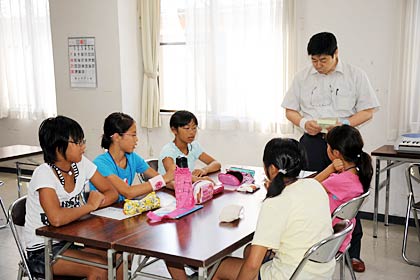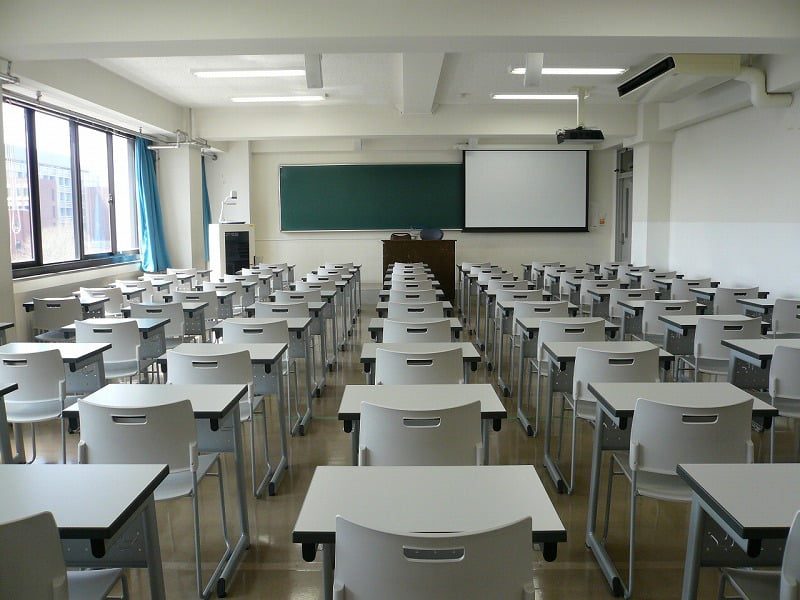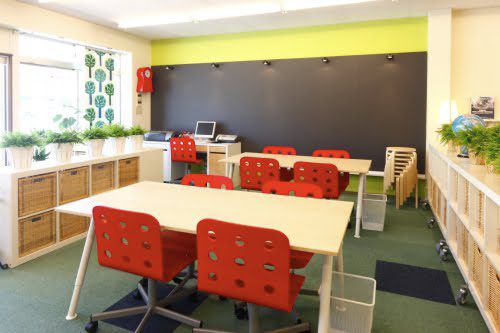In a blog I wrote on June 3, 2015 called “Studying Day and Night”, I tried to outline the Japanese education system and, within that, the secondary schools and their main features. I relied principally on my own experience when describing life in school, although towards the end I mentioned the juku system. Since no description of education in Japan can be complete without discussing this type of school, I’d like to continue my earlier blog with a brief description of the juku, the private school system.
Trying to describe the word juku in any other language is tough. There are all sorts of juku schools but the essence is that they all are private and all offer classes in the evening, in addition to the regular classes of the mandatory school system.

There are essentially two types of these private schools: ones that offer scientific theory (academicijuku) and ones that focus on practicalities (non-academicjuku).The former tend to focus on math, Japanese linguistics, science, English, and social studies, while the latter teach arts, swimming, or even how to use an abacus (soroban in Japanese). Then, there is more than one type of academicjuku. Some are focused on how to pass an entrance exam (for the higher grades of secondary school or college) while others help students catch up or prevent them from falling behind in their studies. And then there are schools focused on offering newer materials than those found in the mandatory curriculum. Some go to greater depths than the level of knowledge taught in public schools, and see this as their primary task. Although it might look as though there were an overlap between the schools preparing students for an entrance exam and those focused on more detailed and in-depth knowledge, the two are really quite different. The latter are not really focused on admission requirements or on helping students take exams. Instead, they strive to offer the extra knowledge a student might seek in a given subject, by getting much deeper into a subject than the public school system can.

The juku system has a significant social impact. According to students, one factor boosting its popularity is that the young people think these schools are a good way to make new friends and to spend more time with existing friends. There is no denying that these schools support a less formal relationship between teachers and students, one reason for which is the much smaller class size (a maximum 15-20 students as opposed to the usual classes of 40 or so). In addition, the juku, as a private school in a commercial market (generated by a competitive situation) offers a freer and more relaxed atmosphere. Given the tiny apartments typical of life in the big cities, the juku is the embodiment of a calm and peaceful environment (free from the interruptions, noise, and paper-thin walls of home).

There are many good points to the juku, but there are two sides to every issue. Since they are private schools, one does have to take a hard look at the financial aspects. And although attending a juku with its intensive studies does offer more of a chance of success in an entrance exam, not everyone can afford the fees of USD 150-400/month.
The arguments presented by those opposed to the juku cite the detrimental effects of the extra study and the parallel reduction in leisure time as their number one objection. According to a survey conducted in 2011, one in five young schoolchildren attends a juku, which, as detailed in my previous report, means attending school from 8 am to 8 or 9 pm (including the public school classes). Then we have to add homework and study for exams which leaves very little time for anything else. Another argument against this extra school is that it is not necessarily good if a constant spirit of competition drives a student from a very young age.
However, juku supporters argue that the system has the power to compensate for the shortcomings of the public school system, because it allows students to resolve individual problems, by working individually. The juku schools try hard to personalize their services, as opposed to the ethos of “everyone is equal” in the public schools.
There are, of course many opportunities for self-development among students who choose not to take advantage of juku services. There are private teachers in Japan too, of course, but they too must be paid for. For someone who does not want to pay or cannot afford to pay, there are still the educational TV programs offered more or less daily on the government channels, which only require that the student buy a special textbook designed for the course.
There is a great deal to be said about the juku system, including the New Year’s marathon study evenings, the essence of which is that the students in a given juku school spend the New Year’s celebration together (along with their teachers) studying. On first hearing, this sounds not only strange, but alarming. However, from the exceedingly enthusiastic and happy reports of students participating in these special programs, it becomes clear that in Japan, even this operates differently.
The photos, in the order in which they appeared:
http://www.kenoh.com/2012/07/19tyouzen.html
http://www.97ysz.com/41xhsp39fqy.html
http://www.asahi.com